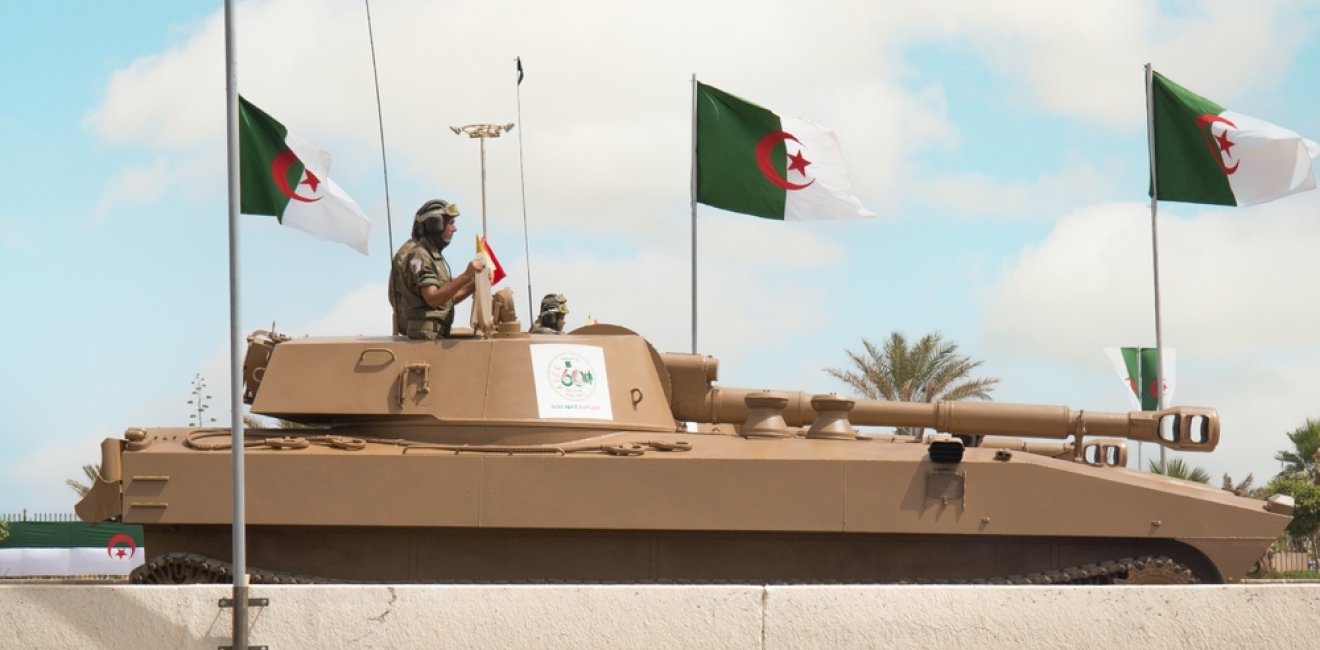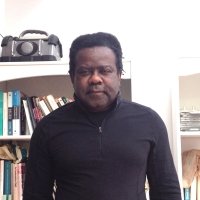The fresh outburst of violence in Sudan over the terms of a plan to integrate the paramilitary Rapid Support Forces (RSF) into the regular military illustrates one more challenge faced by popular uprisings attempting to transition from military authoritarian rule to democracy, as they are in Algeria and Sudan. Sidelining a professional unified military comes with its own challenges. The low level of institutionalization of Sudan’s armed forces increases the will of different factions to attack each other and their willingness to kill mass numbers of civilians to repress democratic initiatives originating from society (Bellin, 2012).
Militaries with significant economic interests, such as those in Algeria and Sudan, are especially keen to find ways to derail democratic transitions
Militaries with significant economic interests, such as those in Algeria and Sudan, are especially keen to find ways to derail democratic transitions. Unfortunately, extricating them from the political economy requires sustained mass mobilization (which requires good opposition organization), even at the risk of violent repression. The capacity to repress, which depends on wealth, also plays a role (Bellin, 2012). Once sidelined, measures must be taken to institutionalize civilian control over the military.
Popular uprisings in both Algeria and Sudan have simmered since 2019, approximately 10 years after Mohamad Bouaizizi’s suicide of despair in Tunisia sparked the Arab Uprisings. Future progress in both cases will primarily depend on permanently extricating the military from politics. Prior to the current conflagration, odds seemed better in Sudan due to better opposition organization and the Sudanese military’s greater vulnerability to economic and foreign pressure. However, the war between two rivals, General Mohamed Hamdan Dagalo (widely known as Hemedti) leading the RSF and General Abdel Fattah al-Burhan leading the military, indicates a willingness to fight for the resources to control the state.
The Algerian Hirak
In February 2019, the “Hirak” (meaning “movement” in Arabic) erupted in Algeria. Abdelaziz Bouteflika, the chronically ill, rarely seen, elderly president announced his decision to run for a fifth term. Incensed, the people held huge, spontaneous demonstrations spread across the country and developed them into a sustained social movement capable of orchestrating destabilizing mass protests on a weekly basis.
The Hirak crossed ideological, ethnic, and regional lines. It was decidedly peaceful and demanded the removal of the entire system (le pouvoir) including the military’s prominent role in politics and the economy. Its first major demonstration on February 16, “called on everyone for a peaceful march against the fifth term and against the existing system."
To prevent the resumption of destabilizing demonstrations that threaten its rule, the [Algerian] military took advantage of the virus to deploy selective repression, distributed more oil wealth to the masses, and carefully stage-managed presidential elections
On April 2, 2019, Algeria’s military forced Bouteflika out of power. The Hirak continued the pressure to end corruption and remove the military from politics as well. In March 2020, the spread of the coronavirus ended mass protests in the streets. To prevent the resumption of destabilizing demonstrations that threaten its rule, the military took advantage of the virus to deploy selective repression, distributed more oil wealth to the masses, and carefully stage-managed presidential elections (as it has done throughout Algeria’s post-colonial history).
The revolt in Sudan
The week after Bouteflika stepped down in Algeria, protesters in Sudan called on the army to take their side against long-term sitting president Omar al-Bashir.
The “Sudanese Revolution” had begun with street demonstrations in December 2018 protesting cuts in food subsidies and demands for a decent standard of living for all. The uprising’s demands grew to calls for democracy, the extrication of the military from politics and the economy, and for the removal of President Bashir from power. After months of sustained mass protests, on April 11, 2019, the Sudanese military staged a coup and removed Bashir from office—ending his 30-year rule.
Sudan’s military took control of the transition. The Transitional Military Council (TMC) replaced Bashir’s government. Shortly thereafter, they formed a military-civilian government with an opposition alliance, the Forces of Freedom and Change (FFC). The TMC and FFC alliance signed a political agreement and a draft constitutional declaration committing to a 39-month transitional phase to conduct elections and return Sudan to a civilian democracy.
In September 2019, the TMC transferred executive power to a military-civilian collective head of state, the Sovereignty Council of Sudan, with a civilian prime minister, Abdallah Hamdock, and a mostly civilian cabinet. The Regime Dismantlement Committee (RDC), a civilian-military entity, was charged with domestic anti-corruption and asset recovery.
On October 25, 2021, led by General Burhan, the Sudanese military staged a coup against the civilian half of the government. The military claimed that the civilians were running the government poorly. Far more likely, the coup occurred due to blockages in transitional justice, and security sector reforms, and because civilian members of the RDC had begun seriously investigating corruption in the military and elsewhere under Bashir.
In December 2022, Sudan’s military coup leaders and the Forces of Freedom and Change announced a new deal committing to a civilian-led transitional government, in which the military’s role would be limited to a security and defense council headed by a civilian prime minister. If it even starts, the civilian-led transition is scheduled to last for two years and end in elections.
Sudan’s new conflagration
The current violence in Sudan between the RSF and the army, which is dragging the country to the brink of civil war, emerged in this context. It was not a split in the military over the repression of civilians, though they are dying in the crossfire. It is a battle between Burhan’s regular forces and the Hemedti’s RSF, who had maintained a fragile alliance during Sudan’s fraught transition.
Hemedti’s forces emerged from the conflict in Darfur that erupted in 2003, ultimately killing more than 300,000 people and displacing 2 million. The RSF evolved from the feared Janjaweed, that had allied with Bashir’s government to quash the rebellion in Darfur. Hemedti turned on Bashir when he was ousted in 2019 and was appointed deputy head of state during the transition.
General Burhan, also a long-time supporter of Bashir, claimed to be one of the national military leaders who demanded that Bashir step aside under popular pressure. Burhan took over power from Bashir as the leader of the Transitional Military Council.
It is not clear that Burhan ever intended to allow a true sidelining of the military. His erstwhile civilian allies, the Forces of Freedom and Change, fear that he will use the conflict with Hemedti to bring remnants of Bashir’s military authoritarian regime back into power. Hemedti did not trust Burhan’s plan to integrate the RSF into the national army under his authority in a satisfactory way.
Comparing transitions
As it currently stands, Algeria’s elite has reconsolidated its military authoritarian regime. Sudan’s military junta is teetering and warring among themselves. What accounts for the difference?
The ability to sustain popular mobilization is part of it. Military authoritarian regimes rarely consider relinquishing power without it. The cruel timing of the COVID-19 pandemic caused abrupt halts in people power that had been leading the military of both countries to reconsider their options. However, while protests stalled in both countries due to COVID-19, mass demonstrations have since resumed in Sudan.
Algeria’s Hirak has been criticized for a lack of organization and leadership. Collective action has been more sustained in Sudan. It has been led by hundreds of “resistance committees” across the country that organize non-violent protests, track the injured and the dead, and demand a government led by civilians.
In addition to relentless popular protests, after its October 2021 military coup, economic pain forced Sudan’s generals to consider, once again, extricating the military from politics. In July 2022, General Burhan announced that the military would withdraw from the political process, once civilian political and revolutionary forces reached an agreement on a new technocratic government. However, before that could take place, the fragmentation of Sudan’s poorly institutionalized armed forces has instigated violent conflict instead.
Getting the military out, and keeping it out of a civilian democracy, will be tricky in Sudan even if national and international forces can forge a sustained ceasefire and repair Burhan and Hemedti’s tentative alliance.
Getting the military out, and keeping it out of a civilian democracy, will be tricky in Sudan even if national and international forces can forge a sustained ceasefire and repair Burhan and Hemedti’s tentative alliance. In Algeria, the military elite has consolidated control of elections, and only a reemergence of popular pressure can alter its economic and political role.
Even if those challenges are met, civilian control over the military would have to be institutionalized (Moon et al, 2011, 250-296). A new constitution could change the rules governing military-government relations more permanently. Civilian-dominated agencies could be created to monitor military officers to keep them out of politics. Civilian leaders could create civilian defense secretariats. Democratically elected leaders could create legislative oversight committees for the military. None of this can be done without sustained pressure from mass demonstrations put at risk of violent repression.
References
Eva Bellin, Reconsidering the Robustness of Authoritarianism in the Middle East: Lessons from the Arab Spring, Comparative Politics, January 2012, Vol. 44, No.2.
Moon, C. and S. Rhyu. 2011. “Democratic Transitions, Persistent Civilian Control over the Military, and the South Korean Anomaly.” Asian Journal of Political Science, 19(3), 250–269.
The views expressed in these articles are those of the author and do not reflect an official position of the Wilson Center.






